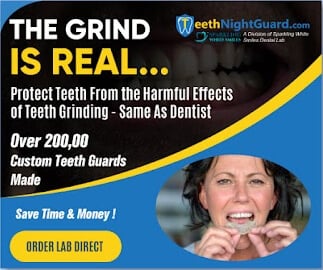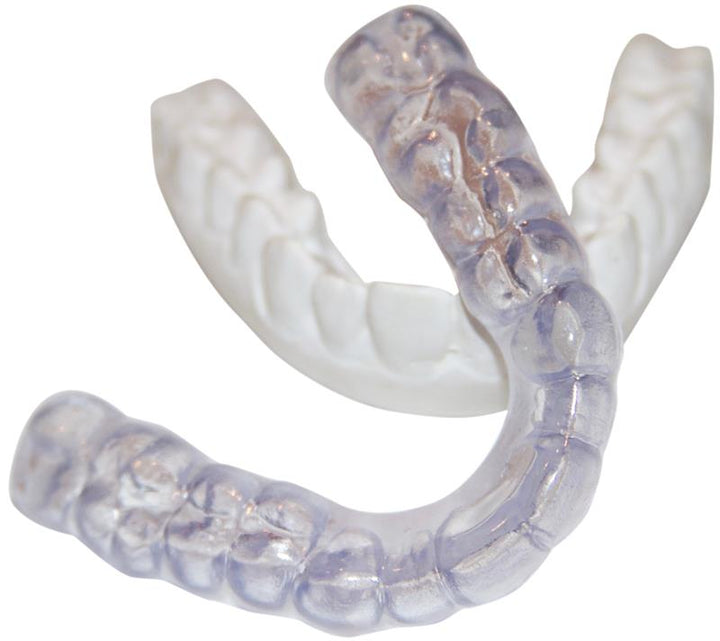If you’ve been waking up recently with sore or tender teeth, you might be worried. On of the most common dreams around the world is one in which the teeth loosen and fall out. So, we humans definitely share a primal fear of severe injury to our teeth.
There are a number of reasons your teeth may become sore or tender, but if the pain happens most often in the morning, you can narrow down the list a little bit. While cavities and gum infections can certainly contribute to soreness, they generally cause pain throughout the day. It is still important to visit a dentist to rule out these possibilities, but both of those issues will usually cause the most pain when chewing.
There are, however, a few issues that are more frequently linked with pain in the morning. We’ll go through them and make some suggestions for follow-up steps and treatments.
Sinusitis
A sinus infection can cause congestion and swelling in the front of the face that can lead to pressure on your teeth from above. If you have a chronic (long-lasting) sinus infection, this pain may become a significant and regular occurrence in the morning.
The reason the pain is generally worse in the morning is that the congestion in the sinuses worsens when you spend a long time lying down. Many sleeping positions do not allow the sinuses to easily drain and release pressure, so the pressure becomes more intense overnight.
If you have a sinus infection that has lasted more than ten days, you should visit your doctor. If it is bacterial, antibiotics can clear it up. If it is viral, your doctor can recommend or prescribe antivirals and nasal sprays that can treat the infection and the symptoms.
Tooth Impaction
Tooth impaction refers to a wisdom tooth that has grown partially or fully into the gum line but not broken through the gum tissue. This can be due to poor alignment of the tooth or other reasons. Whatever the underlying reason, the tooth has become stuck and is causing inflammation that can be aggravated by the pressure of certain sleeping positions, especially if you sleep on your side.
Sometimes, this pain occurs in the gum near the place of impaction (the back of the mouth), but often, inflammation can affect nerve ending near other teeth, making the source of the pain hard to pinpoint.
TMJ or TMD
These terms are often used interchangeably though, technically, they differ. TMJ refers to the temporomandibular joint (the joint that joins your jaw to your skull on each side). TMD stands for temporomandibular disfunction—meaning a problem with the healthy functioning of the joint.
Most people simply refer to any problems with the joint as “TMJ,” the name of the joint itself. Ultimately, the name matters less than the identification of the problem.
If you are experiencing tenderness in your teeth, it may be a sign that you are holding tension in your jaw muscles—meaning you are clenching your teeth tight while you sleep and stressing the teeth, the joint, and the surrounding tendons. If that’s the case, you may eventually difficulty while chewing, facial pain, aching around your ears, clicking in our jaw, or pain while opening and closing your jaw.
Additionally, you can damage your teeth and your gums by exposing them to too much pressure over long periods of time. To relieve the stress that can contribute to jaw tension, your doctor may suggest therapy or antidepressants. And to address the physical issues of jaw tension, you can receive physical therapy and take anti-inflammatories.
Whatever you do, your healthcare provider will likely recommend wearing a night guard while you sleep to cushion your teeth, alleviate some of the pressure, and prevent damage.
Bruxism
Bruxism is the fancy word for grinding your teeth. Teeth grinding and TMD have similar triggers—underlying stress and tension in the jaw. But grinding your teeth can expose them to even more wear and tear than just clenching. You are rubbing your teeth against each other, ruining your teeth’s enamel and potentially causing cracks or chips.

Since it is extremely difficult to treat teeth grinding in a way that eliminates it entirely, you will definitely want to wear a night guard to protect your teeth. Otherwise, you will find yourself making more trips to the dentist than you’d like.
You can order a night guard through your dentist or buy a generic one at the pharmacy. Custom guards will give you a much better fit and better protection, but they can be pricey.
TeethNightGuard, however, has made custom night guards available for direct purchase. So, you do not need to waste money by ordering through your dentist, and you’ll still get a fit that’s guaranteed to leave you happier and healthier. For more information on night guards and bruxism, visit our oral health and sleep blog.
JOIN OUR NEWSLETTER! RECEIVE PROMOTIONS & COUPONS FOR CUSTOM DENTAL NIGHT GUARDS
INTERESTED IN BECOMING AN AFFILIATE OF TeethNightGuard.com?
Earn 15% commission for simply sharing with your friends and family through email or social media such as Facebook, Reddit, or Twitter. Sign up and learn more here: https://www.teethnightguard.com/pages/register-affiliate-account
EXTRA DURABLE 3MM CUSTOM NIGHT GUARD - MAXIMUM DURABILITY AND COMFORT - MOST RECOMMENDED

$119.99
Item Number SWSPRO Manufacturer Sparkling White Smiles Dental Lab Rating Product Description Love this product? Share the product page link with Friends and Family. Simply copy the product page web address or this link: Custom Teeth Night Guard and post!… Read More